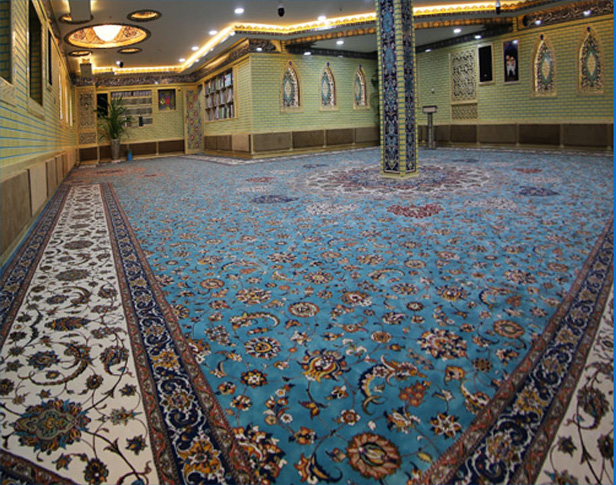
Persian Machine-Made Carpets: A Timeless Tradition in Mosques Worldwide
Introduction:
Carpets have long been an integral part of Islamic culture and architecture, adorning the floors of mosques with their intricate designs and vibrant colors. Among the various types of carpets used, Persian machine-made carpets hold a special place due to their rich heritage and exceptional craftsmanship. This article explores the widespread usage of Persian machine-made carpets in mosques around the world, highlighting their significance and enduring appeal.
Preserving Tradition:
Persian machine-made carpets have a deep-rooted history that dates back centuries. The art of carpet weaving has been passed down through generations in Iran, with each design reflecting the cultural and artistic influences of its time. While hand-knotted Persian carpets are renowned for their meticulous craftsmanship, machine-made carpets have gained popularity for their ability to preserve traditional designs while being more affordable and accessible.
Intricate Designs:
One of the distinguishing features of Persian machine-made carpets is their intricate designs. These carpets often feature elaborate floral motifs, geometric patterns, and calligraphy inspired by Islamic art and architecture. The intricate designs not only add aesthetic value but also serve a functional purpose by aiding in prayer alignment and creating a serene atmosphere within the mosque.
Durability and Maintenance:
Machine-made carpets are known for their durability, making them ideal for high-traffic areas such as mosques. They are designed to withstand heavy footfall while retaining their original beauty. Additionally, these carpets are relatively easy to maintain, requiring regular vacuuming and occasional professional cleaning to keep them looking fresh and vibrant.
Symbolism and Spiritual Significance:
The use of Persian machine-made carpets in mosques holds significant symbolism and spiritual importance. Carpets in Islamic tradition represent a space for prayer, meditation, and spiritual connection with the divine. The intricate patterns and vibrant colors not only enhance the visual appeal but also create a serene ambiance conducive to worship and reflection.
Global Influence:
The influence of Persian machine-made carpets extends far beyond the borders of Iran. Mosques around the world, from Europe to Asia, have embraced these carpets for their beauty and cultural significance. The ability to replicate traditional Persian designs through machine weaving has made these carpets accessible to a wider audience, allowing mosques worldwide to incorporate elements of Persian art into their architectural aesthetics.
Preserving Cultural Heritage:
By using Persian machine-made carpets in mosques, communities worldwide are actively contributing to the preservation of Persian cultural heritage. These carpets serve as a testament to the rich artistic legacy of Iran and its profound impact on Islamic art. Furthermore, their usage fosters a sense of unity among Muslims globally, as they share a common appreciation for the timeless beauty and craftsmanship of Persian carpets.
Conclusion:
Persian machine-made carpets have become an integral part of mosque architecture worldwide, blending tradition with functionality and beauty. Their intricate designs, durability, and cultural significance make them an ideal choice for creating a spiritual atmosphere within these sacred spaces. By incorporating Persian carpets into their mosques, communities not only honor their cultural heritage but also contribute to the global appreciation and preservation of Islamic art.